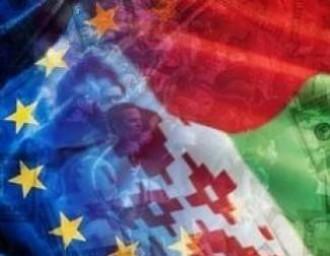EBRD offers $50 million facility to Belarusan firms

On February, 13 the European Bank for Reconstruction and Development (EBRD) launched a new facility in Belarus that will provide local banks with up to $50 million to finance investments in energy eff
These are urgently needed to ensure a more rational use of the country’s energy, the vast majority of which is imported from Russia, says the EBRD official website.
Five-year funding under this programme will be made available to medium-sized industrial firms and small businesses through local banks that meet EBRD lending requirements under the EBRD’s Belarus Sustainable Energy Finance Facility (BelSEFF). The facility was launched at a special event in Minsk on 13 February.
At the event, Belgazprombank, an EBRD customer since 1996, signed up for an energy efficiency loan of over USD 13 million for on-lending to its customers.
Belgazprombank will therefore become the second Belarusan bank to benefit from the new facility. The first was Minsk Transit Bank (MTB), which lends overwhelmingly to the private sector. MTB received a USD 4 million energy efficiency credit line from the EBRD shortly beforehand.
Talks on possible participation are under way with a number of other local banks.
Even though the EBRD’s priority in all its countries of operations is always to promote the private sector, part of the funding under this facility will also be available to qualifying state-owned companies. This is because it is precisely in the public sector that the need for energy efficiency investments is greatest in Belarus.
An additional benefit is that this initiative should also help to foster the emergence of a home-grown energy efficiency industry in Belarus, whose small business sector is well qualified to produce the tools and machinery needed to implement such projects. At present, most of this equipment has to be imported from abroad.
The Czech Republic has provided a non-refundable grant of EUR 1.5 million. This will be used to raise awareness of energy efficiency issues as well as to promote a dialogue with government officials and non-governmental organisations (NGO’s) in support of developing a legal and institutional framework for such projects.
This is the first time that the EBRD has offered sustainable energy funding in Belarus, a country where the consumption of energy as measured against GDP is 2.5 times higher than the EU average. Belarus’s dependence on energy imports at over 80 per cent is the single largest contributing factor to its current account deficit.
The sharp reduction in the energy efficiency subsidies which the Belarus government used to provide -- a consequence of economic upheavals in 2011 -- makes it all the more important that private investors, commercial banks and international financial institutions such as the EBRD step in to help fill the gap.
The EBRD launched its Sustainable Energy Initiative in 2006 and has since invested over EUR 11 billion in more than 600 projects across all of its countries of operations. The resulting environmental benefits from these investments include an annual cut of over 55 million tonnes in carbon dioxide emissions.
-
03.01
-
07.10
-
22.09
-
17.08
-
12.08
-
30.09










































